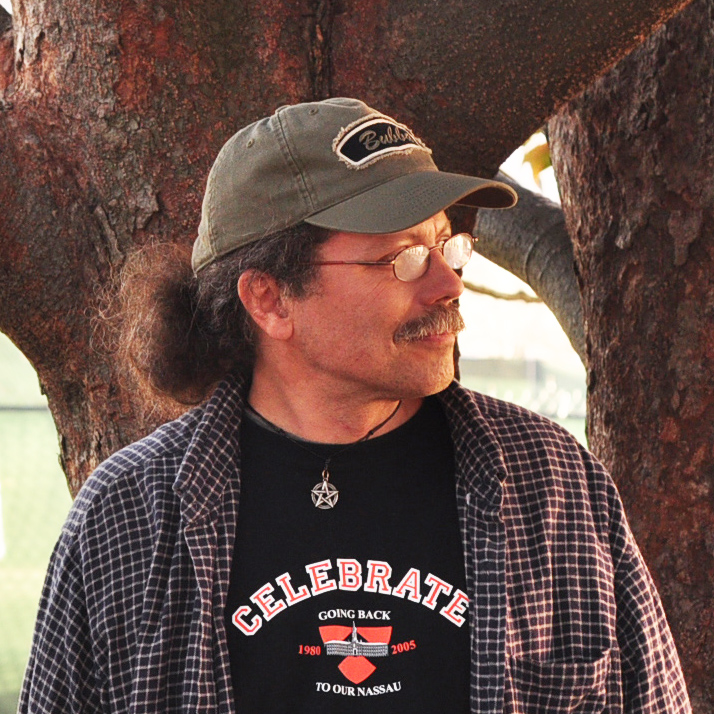BY STEVE RASMUSSEN
Vast masses of money exert a powerful pull that perverts once-well-intentioned words and concepts into twisted oxymorons. Nowhere is this more true than in the world of planning and development.
Most Asheville and Buncombe County residents know the mordant joke that a new development around here is always named for the species whose habitat it wipes out. But after spending two decades reporting on, participating in and organizing against local urban planning decisions, I’ve come to realize that cynical paradoxes of that sort pervade the planning and development process so extensively that … well, only the sarcastic shade of Ambrose Bierce — the hypocrisy-puncturing 19th-century journalist who wrote The Devil’s Dictionary — can do them justice. Accordingly, I offer the following suggested entries (with word usage examples):
Affordable housing
- A rare, some say mythical, creature that developers insist will appear only when all tracts of forest have been replaced by blocks of apartments, but which, even then, will be frightened off by the merest whisper of “rent control.”
- A token concession by a developer that gives an elected official political cover to approve a large luxury-housing project, thereby insidiously increasing the very gentrification that the politician claims credit for opposing.
“Of course, the area median income goes up every year with gentrification: More and more wealthy people moving to Asheville means the area median income is skyrocketing, making [the 80% of AMI] standard of affordable housing less and less relevant to people of the working class.” (Perrin de Jong, presentation to the Urban Forestry Commission, Nov. 2, 2021)
Approval
A foregone conclusion. (Planningspeak, imitative of the sound made by repeated rubber-stamping.)
Of the 18 development projects it reviewed in 2021, the Asheville Planning and Zoning Commission gave approval to 16 (per P&Z meeting minutes).
Change
- A supposedly unstoppable force. Alleged to be beneficial when associated with development but harmful when associated with climate, even though its cause in both cases is the same.
- The ultimate fallback argument for why one’s opponents should just give up and accept their defeat as inevitable. Formerly known as “progress,” a mid-20th-century buzzword rendered impolitic by the racist consequences of urban “renewal.”
“In his closing remarks, [attorney Craig] Justus told neighbors he understands their concerns, but the developer has the right to build housing on the land. … ‘People don’t like change, but change does occur,’ he said.” (Asheville Citizen-Times, July 11, 2018)
Compromise
A never-failing con wherein a developer demands some outrageous multiple of what he wants and then is reluctantly pressured into settling for a fraction — thus achieving his goal by letting his opponents think they’ve forced him into a concession.
The compromise, she said, is that RCG-Killian has pulled original plans that would have called for the demolition of 12 historic homes. … Under the new plan, four homes … would be demolished to make way for the 19 town homes. (WLOS news, Sept. 20, 2021)
Density
The doctrine that the more you crowd people into the city, the less they will want to flee to the country.
“0.56 acres – Asheville, North Carolina (Buncombe County): Build your mountain dream home in a clean-air, low-density and secure environment! Prime development.” (TheLandStore.com)
Growth
The unquestioned certainty that more is always better, as manifested in the gluttonous sprawl of modern cities, highways and waistlines. An ecologically suicidal compulsion to expand, just as cancer spreads till it dies by killing its host.
“One of the few ‘arguments’ we’ve continually heard from those who are in favor of building a hot-mix asphalt plant in East Flat Rock is that it will bring in new jobs and, therefore, stimulate economic growth in the county.” (Shannon Nicholson, Friends of East Flat Rock)
Infill
The monthslong chorus of chainsaws, backup beepers and roofing hammers that precedes a permanent neighborhood traffic jam. (Alt French, enfillet, to pack sardines into a tin.)
“Phyllis Pedersen, whose daughter owns a 100-year-old home in Montford, cautioned against developing parcels that serve to divert stormwater without proper engineering. She said her daughter’s home now floods after an infill home was constructed on a neighboring lot.” (“Council Supports Higher Density Residential Development,” Feb. 24, 2016, Xpress)
Market, The
An all-powerful, all-consuming god with an invisible hand that capriciously spins the world’s wheels of fate and fortune. Its most fervent cultists believe that when The Market is “up,” sacrifices of mature trees, wild animals and poor people must be offered in order to win Its favor — and to avoid being themselves pitched into Its devouring maw by competing true believers. But when Its appetite becomes “saturated,” The Market is said to fall into a “downturn,” and mystic agents of “marketing” are summoned to rouse the scowling leviathan from Its funk and persuade It to smile hungrily once more upon Its devotees, that they may forever reap bountiful “profits.”
“Quite unlike the Great Recession, the current housing market is fundamentally strong and will actually lead us back to economic recovery.” (Debbie Williams, Beverly-Hanks Realtors)
NIMBY (acronym for “nightmare in my backyard”)
- A derogatory term for a person who is prejudiced against cranes and earthmovers.
- An obstacle to Change (see above).
“NIMBYs can be a thorn in the side; their existence is based on overriding the concept of property rights on which the country was built and prospered. This time, however, the NIMBYs had a point.” (Tribune Papers, Oct. 24, 2021)
Sleek
In the rarefied aesthetic atmosphere of a planning board hearing, there is no such thing as an ugly building. That rigidly rectilinear glass-and-concrete box that you or I or practically anyone throughout the previous history of civilization might misperceive as sterile and impersonal is, in reality, “sleek” — and since all artistic judgments are subjective anyway, the emotional reactions of residents who will have to live in the shadow of those bleak, blank walls every day must be dismissed in favor of the out-of-town architect’s rosy portrayal of his characterless cube as “modernist.” Only if you get him drunk after the hearing will you find out that he despises the developer who hired him but refuses to pay for creative design, forcing the highly educated architect to churn out this bloated pig he now has to lipstick as “sleek.”
“Located on Beaucatcher Mountain, this 97-unit apartment community offers panoramic mountain views and sleek contemporary design.” (www.apartmentlist.com)
Smart Growth
The superstitious belief that we can stop developers from destroying rural environments by incentivizing them to destroy urban neighborhoods instead. The actual result: They are now free to destroy both (see also Density; Infill).
“If applied uncritically, Smart Growth can direct capital into projects that set the stage for new, upscale development, rather than meeting the needs of neighbors. A new bike path or pocket park may sound appealing on its face but can drive economic forces that lead to gentrification and displacement.” (mountaintrue.org, March 9, 2021)
Variance
Popes grant indulgences, presidents issue pardons and planning officials approve variances. Never rest easy, O residents, in the belief that a hard-won zoning law protects your community from bad development: Any builder who can fog a mirror can persuade those fellow developers who are warming chairs on a planning commission to champion an exception for him, and you may once again be forced to rally your weary neighbors and troop down to City Hall to do battle in the stress-sweat-drenched arena of a public hearing.
“The board did not reach a conclusion about the height variance, instead deciding to continue the discussion.” (“Richmond Hill Residents Hunker Down For Fight Over Proposed Development,” March 2, 2021, Xpress)
Former Mountain Xpress reporter Steve Rasmussen is a Wiccan priest and author, as well as a quixotically optimistic civic and environmental activist.



